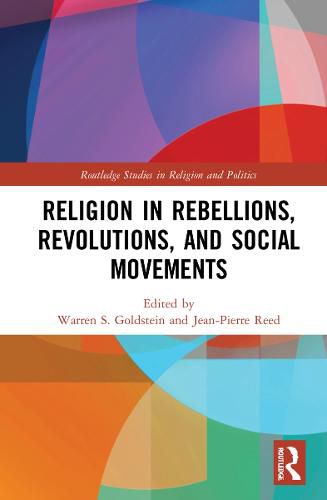Readings Newsletter
Become a Readings Member to make your shopping experience even easier.
Sign in or sign up for free!
You’re not far away from qualifying for FREE standard shipping within Australia
You’ve qualified for FREE standard shipping within Australia
The cart is loading…






Religion in Rebellions, Revolutions, and Social Movements demonstrates that, while religion is often a social force that maintains, if not legitimates, the sociopolitical order, it is also a decisive factor in economic, social, and political conflict.
The book explores how and under what conditions religion functions as a progressive and/or reactionary force that compels people to challenge or protect social orders. The authors focus on the role that religion has played in peasant, slave, and plebeian rebellions; revolutions, including the Chinese, English, French, Russian, and Iranian; and modern social movements. In addition to these case studies, the book also contains theoretical chapters that explore the relationship religious thought has with the politics of liberation and oppression. It examines the institutional, organizational, ritualistic, discursive, ideological, and/or framing mechanisms that give religion its oppressive and liberating structures. Many scholars of religion continue very conventional modes of thinking, ignoring how religion has been-and continues to be-both a hegemonic and counterhegemonic force in conflict. This book looks at both sides of the equation.
This international and interdisciplinary volume will be of interest to students and scholars in the fields of politics of religion, sociology of religion, religious studies, gender studies, and history.
$9.00 standard shipping within Australia
FREE standard shipping within Australia for orders over $100.00
Express & International shipping calculated at checkout
Religion in Rebellions, Revolutions, and Social Movements demonstrates that, while religion is often a social force that maintains, if not legitimates, the sociopolitical order, it is also a decisive factor in economic, social, and political conflict.
The book explores how and under what conditions religion functions as a progressive and/or reactionary force that compels people to challenge or protect social orders. The authors focus on the role that religion has played in peasant, slave, and plebeian rebellions; revolutions, including the Chinese, English, French, Russian, and Iranian; and modern social movements. In addition to these case studies, the book also contains theoretical chapters that explore the relationship religious thought has with the politics of liberation and oppression. It examines the institutional, organizational, ritualistic, discursive, ideological, and/or framing mechanisms that give religion its oppressive and liberating structures. Many scholars of religion continue very conventional modes of thinking, ignoring how religion has been-and continues to be-both a hegemonic and counterhegemonic force in conflict. This book looks at both sides of the equation.
This international and interdisciplinary volume will be of interest to students and scholars in the fields of politics of religion, sociology of religion, religious studies, gender studies, and history.